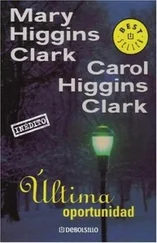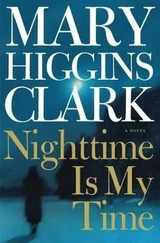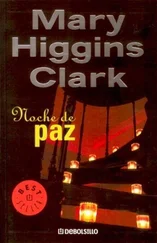As usual, Jane Barr had brought the lawyers to the dining room, where I joined them. I decided to share with them my growing belief that it was possible that Susan Althorp had been the woman I overheard in the chapel twenty-two years ago.
They had not known about my escapade as a six-year-old, but when they did, their response stunned me. They looked horrified. “Kay, do you know what you are saying?” Banks asked.
“I am saying that it may have been Susan in the chapel that day, and that she may have been blackmailing someone.”
“Maybe she was blackmailing your husband,” Markinson snapped. “Have you any idea what the prosecutor could do with that information?”
“What are you talking about?” I asked, genuinely baffled.
“What we’re talking about,” Conner Banks said gravely, “is that, if your supposition is true, you have just provided a motive for Peter to kill Susan.”
“Did you ever tell Peter about being in the chapel and overhearing that conversation?” Markinson asked.
“Yes, I did. Why?”
“When did you tell him, Kay?” Banks demanded.
I was beginning to feel as if I were being cross-examined by two hostile prosecutors. “I told him the night of the literacy benefit reception in this house. My grandmother fell. Peter went with me to the hospital and waited until she was all right, then brought me home. He came in for a while and we talked.”
“That reception was held on December sixth, as I recall,” Markinson said, flicking through his notes.
“That’s right.” I was beginning to feel defensive.
“And you and Peter Carrington were married on January eighth, less than five weeks later?”
“Yes.” I realized I was becoming both frustrated and angry. “Will you please tell me what you’re driving at?” I demanded.
“What we’re driving at, Kay,” Conner Banks said-and now his tone was both serious and regretful-“is that we’ve all wondered about your whirlwind romance. Now you’ve just given the reason for it. If that was Susan Althorp in the chapel that day, and she was blackmailing Peter, the minute you told him you had overheard the quarrel, you became a threat.
“He couldn’t take the chance that you might talk about that encounter to someone else who would put two and two together. Remember, that reception was right after Celeb magazine did that big story on him. By rushing you into marriage, he made you unavailable as a witness in case he was ever brought to trial. He could invoke the marital privilege in court, and besides that, he probably worked to make you fall in love with him so that emotionally you’d never give him up.”
As I listened, I become so enraged that if I had had something to throw at both of them, I would have done it. Instead I shouted at them. “Get out! Get out and don’t come back. I’d rather have the prosecutor defending my husband than either one of you. You don’t believe that even if he did kill Susan and my father, he did it while he was unaware of what he was doing. Now you’re saying that his marrying me was pure calculation, just a way to shut me up. Go to hell, both of you!”
They got up to leave. “Kay,” Banks said quietly, “if you go to a doctor, and he finds a cancer, but tells you that you’re doing just fine, he’sa liar. The only way we can defend Peter is to know every possible factor that could influence a jury. You’ve just delivered a blockbuster that fortunately we are not obliged to share with the prosecutor because it’s something that we uncovered. We only have to tell the prosecutor if we plan to use it as defense evidence at the trial. Obviously, we won’t do that. But for the love of God, please don’t tell anyone else what you’ve just told us.”
The fight went out of me. “I already have,” I said. “The night Peter came home after he was arraigned.”
“You told someone you thought that it might have been Susan in the chapel? Who heard you say that?”
“Elaine and Richard and Vincent Slater were here. I didn’t say I thought it might have been Susan. In fact, I told them I didn’t know who it was. Elaine even joked that it might have been her and Peter’s father because they had been fighting all day about the money she was spending on the party.”
“That’s a relief. But never mention your visit to the chapel again to anyone. If one of them brings it up, stress the fact that you have no idea who was there because in truth you don’t know.”
I saw the two lawyers exchange glances. “We’ll have to talk to Peter about this,” Banks said. “I’d like to persuade him to cancel that sleep center business. His only prayer of ever getting home is ‘reasonable doubt.’ ”
I had confided to the lawyers that I was expecting a baby. As they left, Markinson said “Maybe now that he knows he’s going to become a father, he’ll let us take control of his defense and have a shot at getting him acquitted.”
Nicholas Greco sat in the reception room of the Joined-Hands Fund, a charity created to benefit the victims of disasters. Jeffrey Hammond was vice president of the organization, and according to Greco’s research, his chief responsibility was not to give away money, but to raise it.
The offices of the charity were in the new Time Warner Center on Columbus Circle in Manhattan, an expensive address that certainly added to the overhead, Greco thought. Hammond made one hundred and fifty thousand dollars a year, a princely salary to average Americans, but not so for those who had a child in a prep school that cost forty thousand dollars a year.
Jeffrey’s wife, Nancy, worked part-time in the local congressman’s office in New Jersey. Without knowing her actual salary, Greco knew that the amount had to be minimal. He knew also that the congressman’s own salary was far too low to allow him to be generous to his staff. It was no wonder that, without personal wealth, many members of congress shared apartments in Washington.
All these thoughts were going through Greco’s mind as he sat waiting until the perky young receptionist invited him into Hammond’s office. Ninety-nine percent of receptionists were born cheerful, he thought, as he walked down the corridor.
The smile wrinkles at the corners of Jeffrey Hammond’s eyes were not in evidence today. His greeting had a forced heartiness to it, and his palm was slightly damp when he shook Greco’s hand and invited him to sit down. Then he made sure the door to his office was tightly closed before he went back behind his desk and settled in his swivel chair.
“Mr. Hammond, I asked to see you in your office because I thought it better not to discuss the subject I want to raise in front of your wife,” he began.
Hammond nodded without replying.
“I have done a little homework, shall we call it, and find that Grace Carrington had been a great supporter of your charitable fund.”
“Mrs. Carrington was very generous to many charities.” His voice was carefully neutral.
“Of course. However, she was chairman of your fund for two years, and helped to raise a considerable amount of money, all of which was very beneficial for your position here. To be frank, your job depends on your success in bringing in donations, does it not?”
“I’d like to think that my job is to raise money because that money benefits so many needy people, Mr. Greco.”
Perhaps, Greco thought. “Peter Carrington did not attend the many formal dinners that his wife enjoyed, did he?” he asked.
“Peter hated them. He didn’t mind what Grace donated to those events as long as he didn’t have to attend.”
“Then, for several years, you were her escort of choice at a number of these affairs?”
Читать дальше












